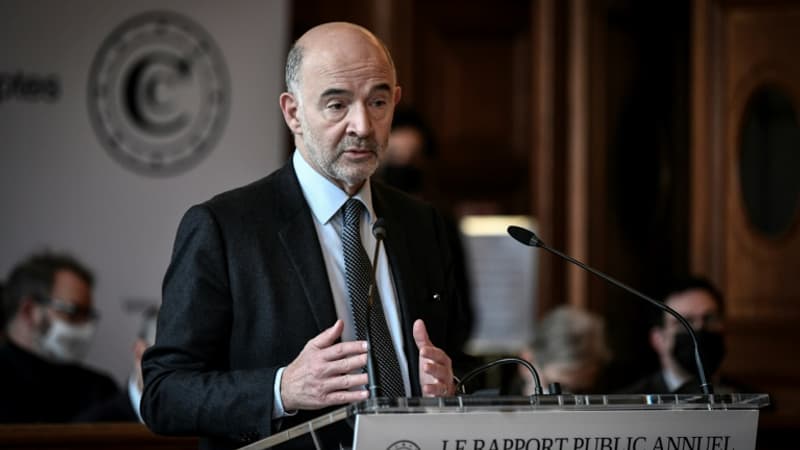Simplified tax niches, better targeted public aid: the Court of Auditors detailed this Thursday its proposals to improve the quality of public spending and reduce it by tens of billions of euros by 2027.
“To recover our room for maneuver, a substantial effort will have to be made in public spending”, to “ideally” generate sixty billion euros in savings by 2027, stressed the first president of the Court, Pierre Moscovici, when presenting the institution ” . contribution” to the public spending review launched by the government.
This “contribution” consists of nine thematic notes that summarize the Court’s proposals on various topics: tax loopholes, education spending, housing policy or financial relations between the State and local authorities…
Tax niches: a cost of more than 94,000 million euros in 2022
Less than three weeks after the Assises des finances publics organized by the Ministry of the Economy to show its will to control public spending and clean up finances without bloodshed, “we can spend less and do better in a very wide number of areas of public action “, summarized Pierre Moscovici on Thursday.
Haro, for example, on tax loopholes, which cost the State no less than 94.2 billion euros in 2022: the financial magistrates of rue Cambon suggest establishing a “limitation mechanism” of its cost between 2023 and 2027, and limiting the duration of any new tax benefit or tax reduction to four years.
On the issue of work-study and professional training, which mobilized “21,800 million public funds in 2022”, the Court advocates “better directing public spending towards priority audiences” and “strengthening the quality requirements of training and fight against fraud. Also note that the support plans for companies in times of crisis continue to be temporary, as the Court pointed out the “temptation” of the State to perpetuate the loans guaranteed by the State (PGE) or the Solidarity Fund for longer than initially planned.
save to invest
On the housing side, public policies have mobilized “38.2 billion euros in 2021, or 1.5% of GDP” or double the European average, explained Pierre Moscovici. “And yet many of the devices have not been shown to be effective,” he criticized. Hence the appeal of the Court to direct aid towards “the most disadvantaged groups” and entrust more responsibilities to local actors in housing policy; This second recommendation also applies to spending on education.
Most of the recommendations have already been formulated by the Court and not necessarily put into practice. “These nine notes are only a first contribution” to the review of public spending, the first president insisted, promising to publish new notes “periodically” as the Court had already done in December 2021, with 13 thematic works published strategically for the presidential election. .
To be successful, the review of public spending cannot be carried out only in the secrecy of ministerial cabinets, warned Pierre Moscovici. “A spending review carried out means bringing together all the spending and gathering all the actors around the table: local authorities, social security agencies, professional federations, associations, actors in the field, civil society…”, he listed.
An ecumenism that is anything but obvious, after the main associations of elected officials boycotted the Courts of Public Finance in June. One thing is certain, rue Cambon: if France’s public debt exceeded 3000 billion euros in the first quarter of 2023, it is not about practicing the plane policy. “Austerity is the enemy of growth and public service. We are not saying that we should get out of debt on principle, but rather to be able to invest”, particularly in the ecological transition, according to Pierre Moscovici.
Source: BFM TV


